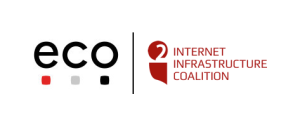On both sides of the Atlantic, members of the Internet industry have a keen eye on data transfer as the core element for reawakening digital trade. Luckily, key milestones have been set in the past few months: President Biden signed an Executive Order in October 2022 to implement the EU – U.S. Trans-Atlantic Data Privacy Framework; the US Department of Justice supplemented this with a new regulation to establish the review mechanisms envisaged by the order; while the EU Commission announced the preliminary adequacy decision on the Framework on 13 December 2022.
To accompany this potential revitalisation of digital trade, two transatlantic dialogues were jointly hosted by the European-based eco Association and the U.S.-based i2Coalition, with these taking place on 6 October 2022 in Washington, D.C., and on 6 December in Brussels. In addition to inputs from a range of distinguished panel speakers, both sessions involved lightning talks from core policymakers who have been heavily involved in the negotiations. In Washington D.C., the lightning talk was provided by Ruth Berry from the Bureau of Cyberspace and Digital Policy at the U.S. Department of State. In reviewing the Trans-Atlantic Data Privacy Framework, she expressed her opinion that this would address the deficiencies of the previous Privacy Shield Framework and “would provide a durable basis for transatlantic data flows that are critical for underpinning the $7.1 trillion transatlantic economy.”
In turn, in Brussels, the lightning talk was provided by Geneviève Tuts, Head of Cabinet at the European Commission Directorate-General for Justice and Consumers (DG JUST). Tuts noted that, in the negotiation of the agreement, “the question was always to have the right balance between private rights and national security needs” and cited the balance to have been solidly achieved through two main elements: namely, “the principles of proportionality and necessity”, and “the safeguards which give citizens the possibility of an access to a real redress”.
All of the panel speakers concurred that the compliance features of the Trans-Atlantic Data Privacy Framework offer a significant opportunity to stimulate digital businesses on both sides of the Atlantic, with the forthcoming six months offering a key opportunity to arrive at greater clarity and more precise rules. As Oliver Süme, Chair of the Board of eco Association, put it, the new framework could “not only stimulate the economy, but could also serve to end the huge legal uncertainty that European businesses, and in particular the SMEs, are currently facing.” From the U.S. perspective David Snead, Co-Founder of i2Coalition stated that “support from the EU in helping the U.S. with surveillance reform will be key to creating an adequate privacy regime in the U.S., in addition to helping the U.S. to support a federal privacy policy”.
For a more in-depth insight into the two transatlantic dialogues on data transfer and SCCs, read the summary report here.
You can also access the full recordings of the Washington D.C. transatlantic dialogue here and the Brussels transatlantic dialogue here.




